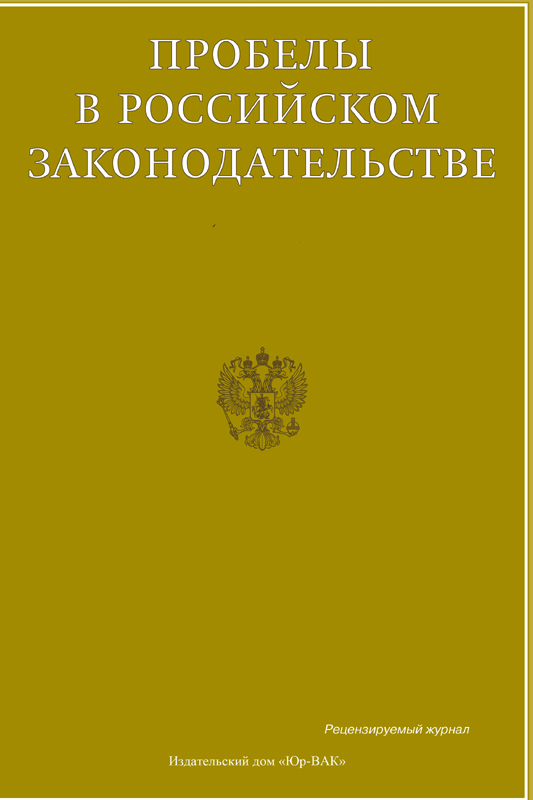On the Problems of Unsettled Features of Participation in Criminal Proceedings of Persons with Disabilities
- Autores: Kurbatova S.M.1
-
Afiliações:
- Krasnoyarsk State Agrarian University
- Edição: Volume 16, Nº 2 (2023)
- Páginas: 257-261
- Seção: Criminal Law Sciences
- URL: https://journals.eco-vector.com/2072-3164/article/view/568888
- ID: 568888
Citar
Resumo
The purpose of the research. The article draws attention to the fact that the Russian criminal procedure legislation does not systematically and comprehensively regulate the issues of participation of persons with disabilities - persons who, as a result of socially significant reasons, are not able to independently fully realize their procedural status of participants in criminal proceedings. Conclusions. By referring to the experience of a number of foreign states, international legal acts, modern humanistic views, the need to move to a new stage in the development of Russian criminal procedure legislation in terms of regulating the institution of participants in criminal proceedings, ensuring their rights and protecting legitimate interests in conjunction with the concept of social legal states. A number of terms and concepts are proposed, such as persons with disabilities, proper participation in criminal proceedings, special criminal procedural status, etc. It is proposed to use the compensatory approach developed by the author to ensure proper participation in criminal proceedings of persons with disabilities.
Texto integral
Sobre autores
Svetlana Kurbatova
Krasnoyarsk State Agrarian University
Autor responsável pela correspondência
Email: sveta_kurbatova@mail.ru
Cand.Sci.(Law), Associate Professor; Associate Professor of the Department of Criminal Procedure, Criminalistics and Fundamentals of Forensic Examination
Rússia, KrasnoyarskBibliografia
- Alisievich E. S. On the issue of defining the concept of “vulnerable groups” in international human rights law // Eurasian Law. magazine 2013. No. 1 (56). pp. 29-39.
- Kurbatova S. M. Theoretical foundations of the criminal procedure status of persons with disabilities: problems of theory and practice. Monograph. Krasnoyarsk: Krasnoyarsk State Agrarian University, 2021. P. 120-125.
- Kurbatova S. M. Compensatory approach to the formation and provision of the procedural status of participants in criminal proceedings as an element of the mechanism for implementing the concept of a modern social legal state // Altai Legal Bulletin. 2022. No. 3(39). pp. 115-119.
- Bartkowiak-Théron, I. and Asquith, N.L. Practice synergies and conceptual divides in law enforcement and public health: some lessons from policing vulnerability in Australia, Policing & Society, 2016.
- Bracken-Roche, D., Bell, E., Macdonald, M.E. et al. The concept of ‘vulnerability’ in research ethics: an in-depth analysis of policies and guidelines. Health Res Policy Sys15, 8, 2017.
- Krasnov V. N. ICD-11 as a Paradigm Shift Phase in the Classification of Mental Disorders // Consortium Psychiatricum. 2021. Vol. 2, No. 2. P. 72-75.
- Kulygina M. A., Syunyakov T. S., Fedotov I. A., Kostyuk G. P. Toward ICD-11 Implementation: Attitudes and Expectations of the Russian Psychiatric Community // Consortium Psychiatricum. 2021. Vol. 2, No. 2. P. 23-34.
Arquivos suplementares









